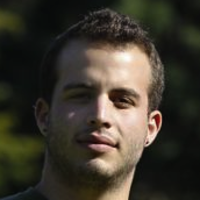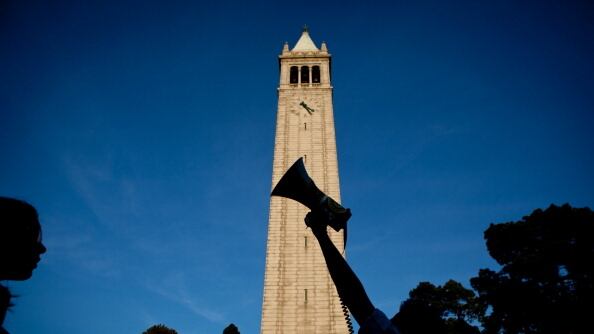When we think of the limitations of discussing the Israeli-Palestinian conflict, first to mind is Capitol Hill or our most begrudged political pundit. But just as often, battles over these boundaries show up in local stories as well.
Not too long ago, a resolution passed the University of California Student Assembly (UCSA) in “strong opposition to” another non-binding resolution, this one passed by the California State Assembly. The state resolution condemned anti-Semitism on college campuses. The only problem was that the bill, HR 35, also deemed defining some Israeli policies as racist and asserting that Israel has committed ethnic cleansing to be anti-Semitic, though even Israeli scholarship supports both claims. California Assembly member Linda Halderman—who introduced HR 35—said the measure “has nothing to do with limiting objectionable political free speech,” yet avoided commenting on the conflation of anti-Semitism with criticism of Israel.

When the UCSA voiced opposition to HR 35, Israel-aligned forces cried foul at the rebuttal. The senior editorial board of the Daily Californian, several past and present Jewish senators on campus, and the pro-Israel advocacy group StandWithUs alleged malicious procedural tactics were used by the UCSA to keep its agenda secret in hope of avoiding Jewish opposition. “Your UC Student Association took a match and lit democracy on fire,” wrote an opponent of the UCSA bill, Noah Ickowitz, who served in Berkeley’s student government. “Not only did it trample on your ability to assemble, but it also deprived you of your own voice in your own backyard.”
Cal Students for Justice in Palestine (SJP) retorted: “In response, it is worth noting that UCSA student leaders did nothing to make this bill less public than any of their other legislative efforts. HR 35’s passage was sudden and unexpected, and the UCSA had a duty to promptly respond in defense of student rights.” SJP rejected allegations asserting the Jewish community on campus was excluded, suspecting the true concerns were with the substance of the bill.
When HR 35 initially passed the State Assembly, San Francisco University Mideast studies department chair Stephen Zunes penned a blistering piece in Huffington Post skewering the bill for “attack[ing] academic freedom” and equating “opposition to Israeli policies… with bigotry towards Jews.” The University of California has also shrugged off the resolution, citing its conflict with the First Amendment. Many of the objections to the UCSA bill also lacked kind words for the state assembly, thinking it had gone “too far,” and instead focused on the alleged procedural exclusion of a large part of the Jewish community from debate on the bill.
However, Joey Freeman, who served on the UCSA board last year and publicly opposed its bill, candidly told me, “If it was the other way around, I don’t know if Tikvah (the pro-Israel advocacy group on campus) would reach out to [SJP] either.” Instead, Freeman put the blame on UCSA board members. Shahryar Abbasi, who represents Berkeley at the UCSA, said in an email, “[T]here were procedural mistakes made and they are being addressed.” That seems to suggest that the matter would soon be settled as merely a bureaucratic issue, but it is more than that.
The UCSA resolution also responded to HR 35’s attack on the SJP-supported movement to boycott, divest from, and sanction (BDS) parties complicit in the Israeli occupation of the Palestinians, calling the tactics “important social movement tools” and encouraging divestment from all countries with human rights violations (although Israel was the only one specifically referenced). Had there been more debate allowed at the proceedings, Freeman believed, “there probably would have been more of a discussion around BDS itself rather than the procedure.”
Tom Pessah, a Jewish-Israeli Berkeley grad student and a co-author of the UCSA bill, argues just the opposite: that this attack on the procedure of the UCSA bill is intended to “divert attention” from the content of the bill and BDS. “This has been the way to shut down discussion on Israel-Palestine for decades,” he said, recalling challenges to a hotly-debated divestment bill at UC Berkeley three years ago that critics claimed attacked and marginalized the Jewish community.
When pressed on whether he believed BDS was anti-Semitic, Freeman relented that BDS efforts at Berkeley should be protected under free speech: “I strongly disagree with it, but I do think they have the right to pursue it.”
With Freeman’s step forward the goose chase finally comes to an end. The allegations of silencing are revealed—at least in effect if not in intent—as functioning to divert attention from the content of the resolution, from talking frankly and openly about the “red line” of BDS, in line with a multiplicity of taboo topics smothered by a more formidable silence whenever the words “Israel” or “Palestine” are uttered in the mainstream.





